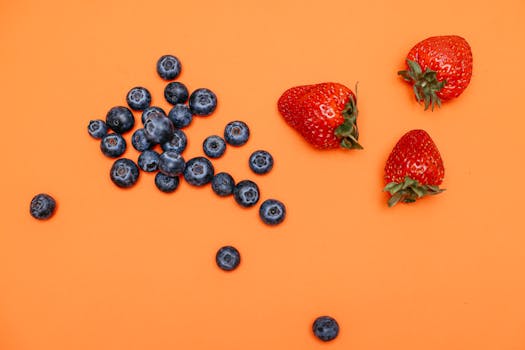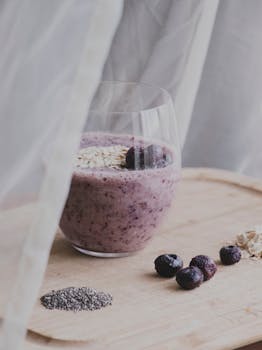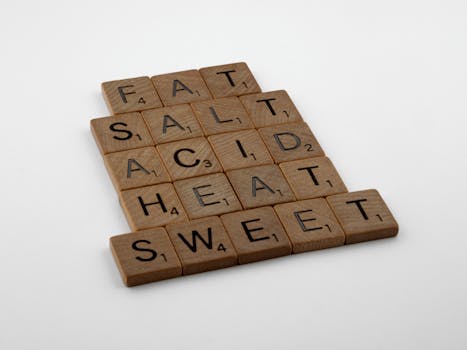High Calorie Foods: A Guide to Gain Weight Healthily
Nov 11, 2024
Are you looking to gain weight in a healthy and sustainable way? If you're an ectomorph or have a fast metabolism, putting on weight can be a real challenge. However, incorporating the right high calorie foods into your diet can make a significant difference. In this comprehensive guide, we'll explore the best nutrient-dense options to help you reach your weight gain goals without compromising your overall health.
Understanding the Importance of Calorie-Dense Foods
When it comes to gaining weight, calories are king. To put on pounds, you need to consume more calories than your body burns. However, it's crucial to choose calorie-dense foods that offer more than just empty calories. Nutrient-rich options will not only help you gain weight but also provide essential vitamins, minerals, and other beneficial compounds to support your overall well-being.
The Role of Macronutrients in Weight Gain
Macronutrients – proteins, carbohydrates, and fats – play a vital role in weight gain. While all three are important, some macronutrients are more calorie-dense than others, making them particularly useful for those looking to gain weight.
Protein
Protein is essential for building and repairing muscle tissue, which is crucial for gaining lean mass. Good sources of protein include lean meats, eggs, dairy products, legumes, and protein supplements.
Carbohydrates
Carbohydrates provide energy and can contribute to weight gain when consumed in excess. Choose complex carbohydrates like whole grains, starchy vegetables, and fruits, as they offer more nutrients than refined carbs.
Fats
Fats are the most calorie-dense macronutrient, providing 9 calories per gram. Healthy fats like those found in nuts, seeds, avocados, and fatty fish can help you gain weight while also providing essential fatty acids and other beneficial compounds.
Top High Calorie Foods for Weight Gain
Now that we understand the importance of calorie-dense foods and the role of macronutrients, let's explore some of the best options to incorporate into your diet.
Nuts and Nut Butters
Nuts and nut butters are excellent sources of healthy fats, protein, and calories. They're also incredibly versatile and can be added to smoothies, yogurt, oatmeal, or enjoyed as a snack. Some of the most calorie-dense nuts include almonds, walnuts, pecans, and macadamia nuts. Nut butters like peanut butter, almond butter, and cashew butter are also great options.

Dried Fruits
Dried fruits are a concentrated source of calories and nutrients. They're also portable and easy to incorporate into your diet. Some of the most calorie-dense dried fruits include dates, raisins, prunes, and dried figs. You can add them to trail mixes, cereals, or enjoy them as a snack.
Whole Milk and Full-Fat Dairy Products
Whole milk and full-fat dairy products like yogurt and cheese are excellent sources of calories, protein, and other essential nutrients. They're also versatile and can be incorporated into smoothies, baked goods, or enjoyed on their own.
Avocados
Avocados are a nutrient-dense fruit that's high in healthy monounsaturated fats and calories. They're also a good source of fiber, potassium, and other vitamins and minerals. You can add avocado to salads, sandwiches, or enjoy it as a dip or spread.
Whole Grains
Whole grains like brown rice, quinoa, and oats are not only high in calories but also provide fiber, vitamins, and minerals. They can be incorporated into various dishes, such as stir-fries, pilafs, or baked goods.
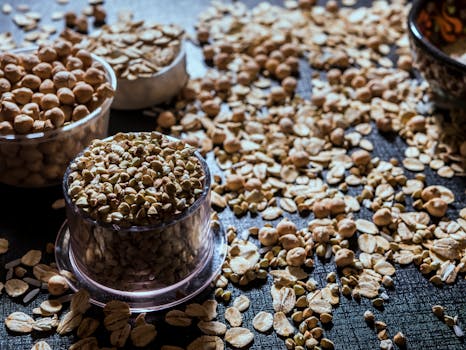
Fatty Fish
Fatty fish like salmon, mackerel, and sardines are excellent sources of protein, healthy omega-3 fatty acids, and calories. They can be baked, grilled, or added to salads and pasta dishes.
Olive Oil and Other Healthy Oils
Olive oil, avocado oil, and other healthy oils are calorie-dense and can be used for cooking, dressing salads, or drizzling over dishes for an extra calorie boost.
Protein Supplements
For those who struggle to meet their calorie and protein needs through whole foods alone, protein supplements like whey, casein, or plant-based options can be a convenient and effective solution. They can be added to smoothies, baked goods, or consumed as a standalone supplement.
Tips for Incorporating High Calorie Foods into Your Diet
Now that you know some of the best high calorie foods for weight gain, here are some tips to help you incorporate them into your diet effectively:
Eat More Frequent Meals and Snacks
Instead of relying on three large meals, try to spread your calorie intake throughout the day by eating smaller, more frequent meals and snacks. This can help prevent feelings of fullness and make it easier to consume more calories.
Drink Your Calories
Liquid calories can be easier to consume than solid foods, especially if you struggle with a poor appetite. Consider adding calorie-dense ingredients like nut butters, avocado, or protein powder to smoothies or shakes.
Meal Prep and Batch Cooking
Meal prepping and batch cooking can make it easier to have high calorie foods readily available. Cook larger portions of calorie-dense meals and snacks, and portion them out for the week.
Add Calorie-Dense Toppings and Condiments
Dress up your meals with calorie-dense toppings and condiments like nuts, seeds, avocado, cheese, or healthy dressings and sauces.
Consult a Registered Dietitian or Nutritionist
If you're struggling to gain weight or have specific dietary needs, consider consulting a registered dietitian or nutritionist. They can provide personalized guidance and create a meal plan tailored to your goals and preferences.
Potential Drawbacks and Considerations
While high calorie foods can be beneficial for weight gain, it's important to be mindful of potential drawbacks and considerations:
Digestive Issues
Increasing your calorie intake too quickly or consuming large amounts of certain foods, like dairy or high-fiber options, can lead to digestive issues like bloating, gas, or constipation. Introduce new foods gradually and stay hydrated.
Nutrient Imbalances
Relying too heavily on calorie-dense foods without considering overall nutrient balance can lead to deficiencies or excesses of certain vitamins, minerals, and other compounds. Aim for a varied diet with a range of nutrient-dense foods.
Weight Gain in Undesired Areas
While gaining weight is the goal, some individuals may experience unwanted fat accumulation in certain areas, like the abdomen or face. Incorporating strength training and maintaining an active lifestyle can help promote lean muscle mass gain.
Potential Health Risks
For individuals with certain health conditions, such as diabetes, heart disease, or digestive disorders, consuming large amounts of high calorie foods may exacerbate symptoms or increase risk factors. Always consult with a healthcare professional before making significant dietary changes.
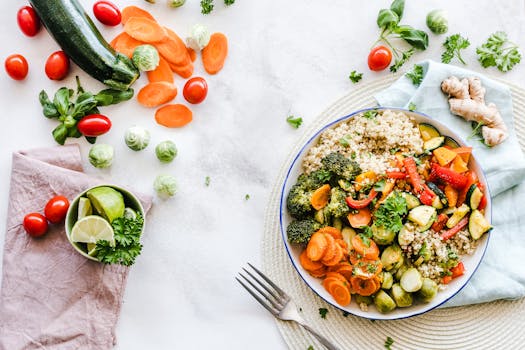
Conclusion
Gaining weight in a healthy and sustainable way requires a balanced approach and the incorporation of nutrient-dense, high calorie foods. By incorporating options like nuts, dried fruits, whole milk, avocados, whole grains, fatty fish, and healthy oils into your diet, you can increase your calorie intake while also providing your body with essential nutrients. Remember to listen to your body, introduce new foods gradually, and consider seeking guidance from a registered dietitian or nutritionist if needed.
At Tidalflow, we understand the importance of a well-rounded approach to health and fitness. Our AI personal training solutions are designed to provide personalized guidance and support, taking into account your unique goals, preferences, and dietary needs. Whether you're looking to gain weight, build muscle, or simply improve your overall well-being, our team of experts is here to help you achieve your goals in a sustainable and enjoyable way.
Disclaimer: This article is for informational purposes only and does not substitute professional medical advice. Consult a healthcare provider for personalized recommendations.
You should not have to do it all on your own




